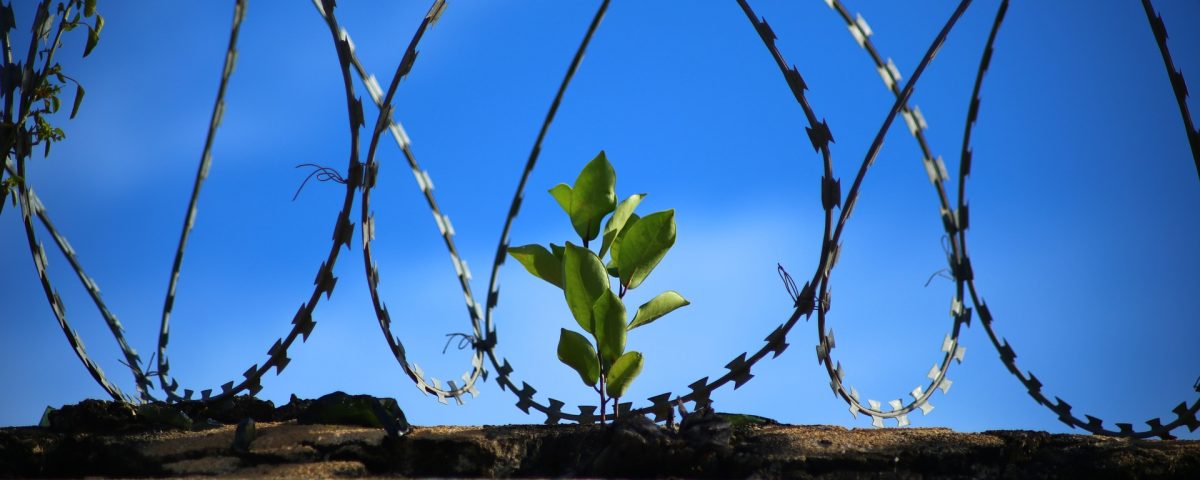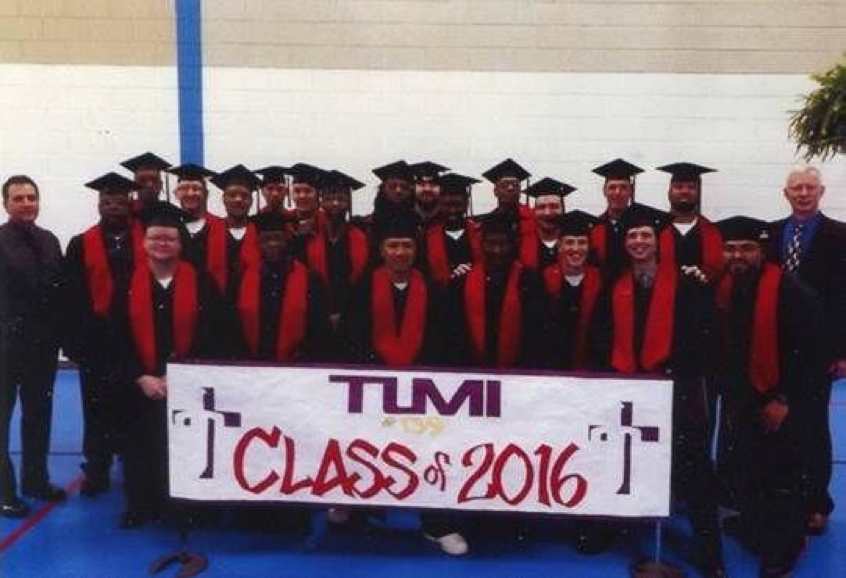
Managing Your Life: Balancing Priorities
June 20, 2017
Why does biblical engagement matter?
June 21, 2017Prison: The Surprising Source of World-Class Leaders

Rev. Don Allsman
The problem with mass incarceration in America has been widely reported. We pity prisoners and recognize the problems, but we don’t always see the potential. We are training over 1400 people in 70 prison locations to be leaders in the Lord’s Great Commission. Instead of being a drag on society, returning citizens are going to our neediest mission fields with formal theologically training. This gives new meaning to “remember those who are in prison.” Read full article from Rev. Don Allsman below.
The writer of Hebrews said, “Remember those who are in prison, as though in prison with them” (Hebrews 13.3). Christians are clearly commanded to show sympathy for those suffering behind bars. In addition to showing sympathy, the problem with mass incarceration in America has been widely reported. There are 2.2 million prisoners in the USA[1], a number which exceeds the population of 89 countries[2]. Jails and prisons are the most dehumanizing environments on earth, damaging not only inmates but also their families, prison officials and society. Once a person has been incarcerated for a year or so, in order to survive in that context, he or she undergoes an enculturation with the prison environment. This leads to criminogenic behavior[3] such as:
- Blaming others vs. taking responsibility for crimes
- Distrust of authority vs. respecting authority from God
- Egocentrism vs. showing sacrificial care for others
- Association with corrupt characters vs. fellowship with believers
- Atrophied decision-making vs. normal problem-solving skills
In this environment, persecution of Christian abounds. It is not easy to follow Christ in prison because believers are constantly at risk of being attacked or killed for their faith. For those who are released, between 45-70% recommit crimes and return to prison because they cannot adjust to a new culture. Also, most prisoners have so estranged themselves from their families that they are not welcomed home. Even Christians have trouble re-entering society without formal training and godly instruction.
We pity prisoners. We recognize the problems. But we don’t always see the potential.

At The Urban Ministry Institute (TUMI), we are currently training over 1400 people in 70 prison locations to be leaders in the Lord’s Great Commission. Another 400 men and women have been released from prison, having taken at least one of TUMI’s 16 seminary-level courses. From California to Pennsylvania, prisoners are being called to a high level of academic rigor that many have not previously achieved. And the stories of transformation have been remarkable.
Prisoners are taking responsibility for their actions; developing respect for authority; showing empathy for others; shifting their associations; and developing godly leadership skills. TUMI students are having a positive effect. Wardens with TUMI programs recognize that their prisons are improving through fewer discipline problems. Recidivism has dropped from 45-70% to 6% (www.servingcalifornia.org). Families are being restored, with many stories of prisoners being welcomed home despite their criminal past. This transformation presents unprecedented opportunity for the gospel.
Instead of being a drag on society, former TUMI inmates (“returning citizens”) are an asset to our communities. Having weathered persecution and the worst of humanity, they return to our most dangerous mission fields with fearlessness, boldness and an intensity to make up for lost time. They are ready for deployment, and have received formal theologically training. In America’s inner cities, they carry a badge of honor for having been in prison, and are ready to serve as role models to break the pattern of juvenile crime and gang activity.
This transformation comes from TUMI’s pedagogy:
- Unashamed commitment to God’s word, rooted in historic orthodox teaching
- Facilitated by a leadership developer who serves as a living example of the content
- Delivered in a cohort community where ample time is given for processing material together
- Based on the learning style of orality (what students hear rather than what they read)
- Expressed in practical projects that build atrophied problem-solving skills
- Rooted in several hundred case studies that force engagement with their behavior.
At a recent class, I observed this transformation take place right before my eyes. A case study was presented about a pastor holding a community meeting to discuss the effects of crime terrorizing the neighborhood. In this scenario, a person asked, “why does there seem to be so many problems in our community and not in suburban, affluent areas?” As several of the prisoners discussed how they would answer the question, I could see their depth of insight grow with every comment. Finally, there was a pause and one of the students said, “Wait a minute—I was that person terrorizing my community. I can go back and make a change for the better where I grew up.”
 By the time students have had hundreds of these kinds of ethical dilemmas to consider, they emerge as tremendous assets for the Kingdom. But they cannot re-integrate into society alone. They need the Church to come alongside them. They need a church home when they get out. They need people to help them adjust to a different culture from prison. They need friends to spend time with them and show them the ropes and help them become less dependent. They need a place to use their gifts and training in church service without being “projects” or celebrities. Thousands of local churches are needed to help returning citizens make the transition from prison to fruitful ministry on the outside.
By the time students have had hundreds of these kinds of ethical dilemmas to consider, they emerge as tremendous assets for the Kingdom. But they cannot re-integrate into society alone. They need the Church to come alongside them. They need a church home when they get out. They need people to help them adjust to a different culture from prison. They need friends to spend time with them and show them the ropes and help them become less dependent. They need a place to use their gifts and training in church service without being “projects” or celebrities. Thousands of local churches are needed to help returning citizens make the transition from prison to fruitful ministry on the outside.
Accredited institutions can help as well. TUMI has several academic partners who will allow prisoners to transfer their work toward a Bachelor’s or Master’s degree. Returning citizens from all over the country are eager to have more colleges and seminaries grant recognition to their work in prison.
Associations and denominations are in a position to deploy returning citizens as church planters, pastors, elders, deacons and Bible teachers. Because many returning citizens have completely given up their lives to Christ, they are willing to go anywhere. New ministries can be launched. Indigenously-led churches can be strengthened. Church planting movements can be birthed.
There is a new opportunity for the Great Commission, and it is coming from behind prison walls.
From the darkest places on earth, we can deploy an army of hungry, fearless and theologically-trained men and women for the mission fields of the world.
[1] https://www.prisonpolicy.org/reports/pie2017.html
[2] http://www.worldometers.info
[3] Sam Dye, “Teaching for Transformation,” Correctional Ministries and Chaplains Association Conference, May 6, 2017, Philadelphia, PA.
 About the Author
About the Author
Rev. Don Allsman is Vice President of World Impact and the Executive Director of Satellite Ministries for The Urban Ministry Institute (TUMI, www.tumi.org). He has served in various executive roles at World Impact since 1991 and currently oversees the 271 campuses of TUMI’s leadership training in 18 countries. Don can be reached at .


